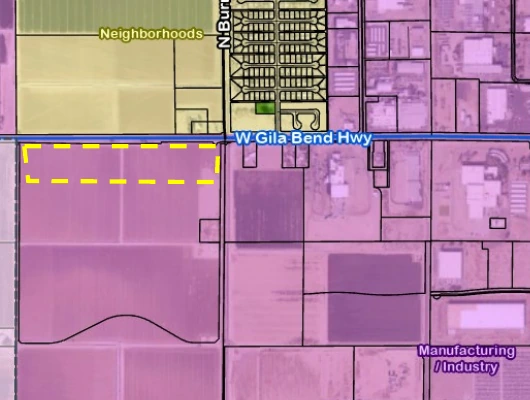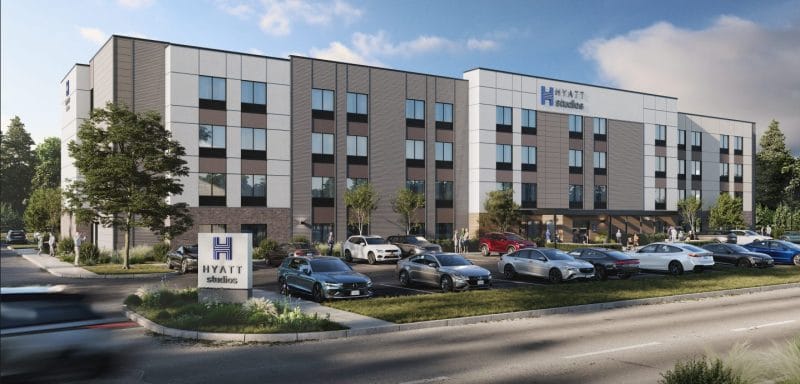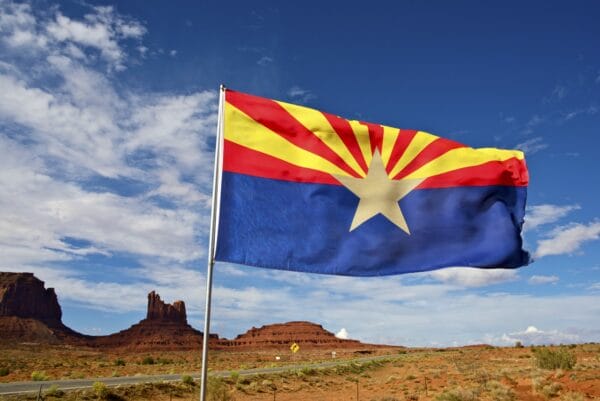By Paulina Pineda | Cronkite News
WASHINGTON – The Supreme Court said Tuesday it will consider a Gilbert church’s claim that the town’s sign ordinance discriminates against religious speech by placing stricter regulations on church signs than on other non-commercial signs.
The Good News Presbyterian Church said city law restricted it to posting a limited number of signs, which could be no larger than 6 square feet, for no more than 12 hours before its services.
Signs for campaigns, political speech and other non-commercial operations, like homeowners associations, meanwhile, could be up to 80 square feet and could stay up for months at a time.
“We think this is an important case dealing with the First Amendment,” said Matt Sharp, counsel for the Alliance Defending Freedom, which is representing the church. “You’re always thankful when it (the Supreme Court) finds your case important enough to take up for review.”

Pastor Clyde Reed of the Good News church could not be reached for comment Tuesday.
But officials in Gilbert said the case deals with a law that has already been revised. Gilbert Town Attorney Michael Hamblin said in a prepared statement Tuesday that no organization, nonprofit or not, can advertise without restrictions.
“The Alliance Defending Freedom wants religious groups to be allowed to post free, permanent advertisements throughout an entire city area without any regulation or restriction,” Hamblin said in the statement.
It went on to say that the church’s claims have twice been rejected by federal district and circuit courts, and the town “believes that the United States Supreme Court will continue to reject these claims.”
Sharp said the alliance is eager to argue the case, but that a hearing before the Supreme Court is not likely to be scheduled until late this year or early 2015.
The church argued that the case needs to be considered by the Supreme Court because the last ruling – a divided 2013 decision by the 9th U.S. Circuit Court of Appeals that sided with the town – was part of a “three-way conflict involving at least eight” circuit courts over whether such ordinances are constitutional.
That split between the circuits is one reason that a group of law professors filed a friend-of-the-court brief in November in support of the church.
Eugene Volokh, a law professor at the University of California, Los Angeles, said the brief was filed as part of UCLA’s First Amendment Amici Brief Clinic, which represents groups or academics in free speech and religious freedom cases. The brief was signed by seven professors from seven different law schools, including the Sandra Day O’Connor School of Law at Arizona State University.
“The (circuit court’s) decision alone to me seemed pretty wrong,” Volokh said. “The professors also took the same view.”
The 9th Circuit said the town’s restrictions on signs did not violate the First Amendment because the law did not focus on the content of the sign, only the type of group posting it, and it was “tailored to serve significant governmental interests.”
Volokh disagrees with the court’s finding that the ordinance was “content-neutral.” He said there is a content-based distinction between ideological, political and non-commercial signs.
“A very important issue in free-speech cases is whether it’s content-based or content-neutral,” he said. “The restriction wasn’t content-neutral because it treats each differently.”
He said because the courts have taken different stances on the issue, the professors “thought it would be helpful to urge the court to take the case.”
“I think they will probably overturn the lower court’s decision,” Volokh said. “If the lower courts’ decisions are all over the place, then the Supreme Court needs to set up a uniform rule.”







